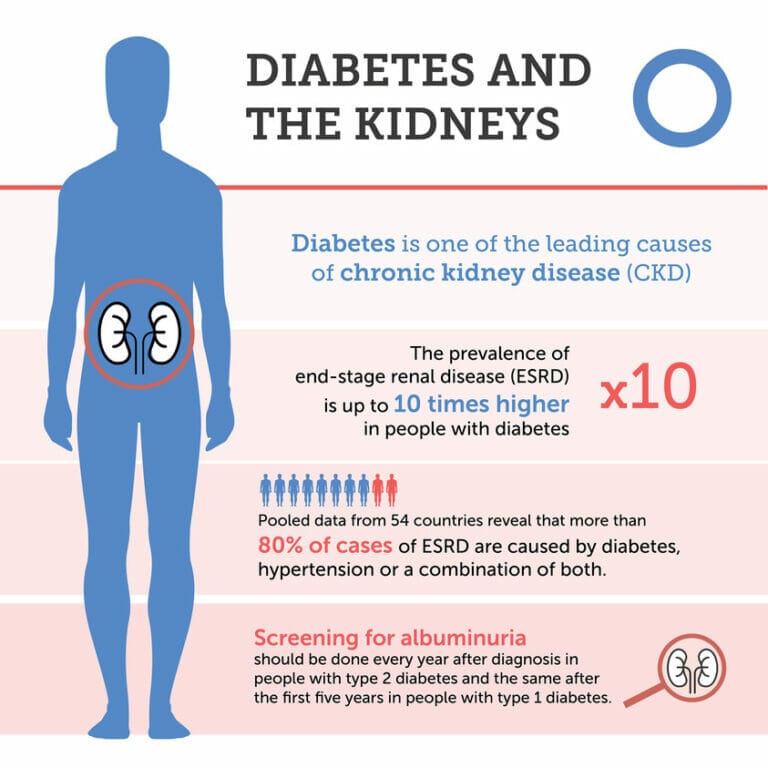10 Facts About Diabetes in Singapore and How to Manage It
Introduction
Singapore is grappling with a growing health concern that poses serious long-term implications: diabetes. As awareness and diagnosis rates increase, there’s an urgent need for both individuals and healthcare institutions to act. Tropika Club Magazine is here to bring you 10 vital facts about diabetes in Singapore and offer valuable advice on managing the condition.

Table of contents
- Introduction
- No Time to Read? Here’s a Snappy Summary of This Article
- 1. Rising Prevalence
- 2. Leading Cause of End-Stage Renal Disease
- 3. High Costs
- 4. Impact on the Young
- 5. Heart Disease Risk
- 6. Diet Matters
- 7. Exercise is Essential
- 8. Mental Health Connection
- 9. Importance of Regular Checks
- 10. Advances in Technology
- Conclusion
- Meanwhile, Check Out Tropika Club’s Ecosystem of Websites
No Time to Read? Here’s a Snappy Summary of This Article
- Silent Epidemic: Diabetes silently affects 1 in 9 Singaporeans, making awareness crucial for early intervention and prevention.
- Youthful Onset: Surprisingly, Singapore sees an increasing number of young adults diagnosed with diabetes, emphasizing the need for lifestyle changes.
- The Sweet Menace: Uncontrolled diabetes can lead to blindness, kidney failure, and limb amputation—underscoring the importance of regular check-ups.
- Cultural Impact: Singapore’s diverse food culture plays a role in diabetes, but it also offers a variety of healthier culinary choices.
- Exercise Rx: Regular physical activity is a potent tool in diabetes management, helping maintain healthy blood sugar levels.
- Community Support: Singaporeans are joining hands through support groups and awareness campaigns, fostering a united front against diabetes.

1. Rising Prevalence
“Diabetes is a chronic condition that affects how your body turns food into energy. When you have diabetes, your blood sugar levels become too high. This can lead to serious health problems, such as heart disease, stroke, blindness, and kidney failure.
Diabetes rates in Singapore are on the rise, with the condition affecting nearly 11% of the population. The increase is attributed to various factors, including:
a. An aging population: The number of people aged 65 and over is expected to more than double by 2030. This is because Singaporeans are living longer and healthier lives. However, aging also increases the risk of developing diabetes.
b. Changes in diet: The typical Singaporean diet is high in processed foods, sugary drinks, and saturated fat. These foods can contribute to weight gain, which is a major risk factor for diabetes.
c. Sedentary lifestyles: Singaporeans are becoming increasingly sedentary. This is due to factors such as the rise of technology and the decline of physical activity in schools. A sedentary lifestyle can also increase the risk of diabetes.”

2. Leading Cause of End-Stage Renal Disease
Diabetes has become a leading cause of end-stage renal disease in Singapore. In fact, about half of all new dialysis cases are linked to diabetic kidney disease. This staggering statistic underlines the importance of early detection and effective management.

3. High Costs
“Diabetes is a chronic condition that affects millions of people around the world, including Singapore. It is a leading cause of death and disability, and it can incur significant costs for both individuals and the healthcare system.
The direct costs of diabetes include medications, insulin injections, and regular monitoring. These costs can be high, especially for people who need to take multiple medications or who require insulin injections. In Singapore, the mean annual direct medical cost of type 2 diabetes is estimated to be S$2,034.
The indirect costs of diabetes include loss of productivity and other long-term complications. People with diabetes may miss work or school due to illness, and they may also have difficulty performing their daily activities. Diabetes can also lead to serious complications, such as heart disease, stroke, blindness, and kidney failure. These complications can require hospitalization and surgery, which can further add to the costs of diabetes.”

4. Impact on the Young
While diabetes is generally more prevalent in older adults, Type 2 diabetes is increasingly affecting younger people in Singapore. This trend is troubling because early onset increases the risk of complications later in life.

5. Heart Disease Risk
“Individuals with diabetes are two to four times more likely to develop cardiovascular diseases (CVD) than people without diabetes. This is because diabetes damages the blood vessels, making them more likely to become clogged with plaque. Clogged arteries can lead to heart attack, stroke, and other serious health problems.
In Singapore, heart diseases are the second most common cause of death, and the prevalence among diabetics is particularly high. According to the Singapore Heart Foundation, about 40% of people with diabetes will develop CVD at some point in their lives. This is why it is so important for people with diabetes to take steps to manage their blood sugar levels and other risk factors for CVD, such as high blood pressure, high cholesterol, and smoking.”

6. Diet Matters
The Singaporean diet, rich in carbohydrates and sugar, has been cited as a significant contributing factor to the rising rates of diabetes. Being mindful of your nutritional intake, such as reducing consumption of sugary drinks and white rice, can make a significant difference.
_
Read Also:
How Do You Find Out if You Have Diabetes?
_
/assets/images/provider/photos/2653044.jpg)
7. Exercise is Essential
Regular physical activity is crucial in managing diabetes. Exercise improves insulin sensitivity and helps maintain a healthy weight, both of which are essential in controlling blood sugar levels.

8. Mental Health Connection
“Managing diabetes is a complex and demanding task that can take a toll on both physical and mental health. People with diabetes must carefully monitor their blood sugar levels, make healthy food choices, and get regular exercise. They may also need to take medication or insulin injections. All of these tasks can be stressful, and the stress of living with diabetes can lead to anxiety, depression, and other mental health problems.
Emotional stress can make it difficult to manage diabetes. When people are stressed, their blood sugar levels can become more erratic. They may also be less likely to follow their treatment plan. This can lead to serious health complications, such as heart disease, stroke, and blindness.
Addressing mental well-being is crucial in comprehensive diabetes management. People with diabetes should talk to their doctor about their emotional health and get support from a therapist or counselor. There are also many self-help strategies that can help to manage stress, such as relaxation techniques, exercise, and spending time with loved ones.
By taking care of their mental health, people with diabetes can improve their overall health and well-being. They can also reduce their risk of serious health complications.”

9. Importance of Regular Checks
Regular medical check-ups and screenings are vital for early detection and ongoing management. The Singaporean government offers subsidized screenings under the Screen for Life program, emphasizing its commitment to tackling this public health issue.

10. Advances in Technology
“Advances in medical technology are making diabetes management easier and more effective. One such advancement is the continuous glucose monitoring (CGM) system. CGM systems are small, wearable devices that track blood sugar levels in real time. This allows people with diabetes to see how their blood sugar levels are changing throughout the day and night, and to make adjustments to their treatment accordingly.
CGM systems have been shown to improve diabetes control and reduce the risk of complications. They are also more convenient and less intrusive than traditional blood glucose monitoring methods. As a result, CGM systems are increasingly being adopted by people with diabetes around the world.
Singapore is at the forefront of adopting CGM systems. In 2020, the Singapore government announced that it would be providing subsidies for CGM systems to all eligible patients. This has made CGM systems more affordable and accessible to people with diabetes in Singapore.
The adoption of CGM systems is a major step forward in the fight against diabetes. These devices offer a promising new way to manage diabetes and improve the lives of people with the condition.”
Conclusion
To sum up, diabetes is a pressing concern in Singapore, but it’s not insurmountable. With proper education, early detection, and effective management strategies, we can mitigate its impact and improve the quality of life for those affected. So arm yourself with the right information, make healthier choices, and take control of your health.

FAQ FOR 10 FACTS ABOUT DIABETES IN SINGAPORE AND HOW TO MANAGE IT
Q: What is the prevalence of diabetes in Singapore?
A: Diabetes affects 1 in 9 Singaporeans, making it a prevalent health concern in the country.
Q: Can diabetes affect young adults in Singapore?
A: Yes, there is an increasing number of young adults in Singapore being diagnosed with diabetes, highlighting the need for awareness and prevention.
Q: Are there specific complications associated with uncontrolled diabetes?
A: Uncontrolled diabetes can lead to severe complications, including blindness, kidney failure, and the risk of limb amputation.
Q: How can I make healthier food choices in Singapore’s diverse food culture?
A: Exploring healthier culinary options in Singapore, such as low-sugar dishes, can help manage diabetes while enjoying local flavors.
Q: Is regular exercise important for managing diabetes?
A: Absolutely, regular physical activity is a powerful tool for maintaining healthy blood sugar levels and overall diabetes management.
Q: Where can I find support for diabetes management in Singapore?
A: You can find support through local diabetes support groups and awareness campaigns, which offer valuable resources and a sense of community.

Have an Article to Suggest?
Tropika Club is always looking for new and exciting content to feature in their magazine and they value the input of our readers. If you have any noteworthy content or articles that you believe would be a great addition to Tropika Club’s magazine, we are open to suggestions and encourage you to reach out to us via email at [email protected]. By doing so, Tropika Club values your expertise and knowledge in the matter and appreciates your willingness to help. We will review your recommendations and update our list accordingly
Meanwhile, Check Out Tropika Club’s Ecosystem of Websites

Tropika Club Magazine – Tropika Club Magazine is a Singapore-based publication that features articles on a wide range of topics with a focus on local businesses and content for the region. The magazine emphasizes supporting local businesses through its #SupportLocal initiative, which includes coverage of everything from neighborhood hawker stalls to aesthetic clinics in town. In addition to highlighting local businesses, Tropika Club Magazine also covers a variety of local content, including beauty, lifestyle, places, eats, and what’s on in Singapore and the Asia Pacific region.
Tropika Club Deals – Tropika Club Deals is a leading online deals and voucher shopping site in Singapore, offering amazing discounts on beauty, wellness, and fitness products and services. It’s the perfect platform for customers who want to discover the best deals without having to commit to a specific appointment date and time. These deals are available at major beauty stores, facial salons, hair salons, and other brands in Singapore, with no minimum spend required. Choose from guaranteed discounted deals in the categories of hairstyling, hair removal, facial & aesthetics, body slimming, brows & lashes, nails & makeup, massage & spa or fitness & wellness. Tropika Club Deals is also ideal for customers who want to buy vouchers as gifts or to use for the future. So whether you’re looking to save money on your next haircut or want to treat yourself to a relaxing massage, Tropika Club Deals has got you covered with the best voucher and coupon deals in Singapore!




